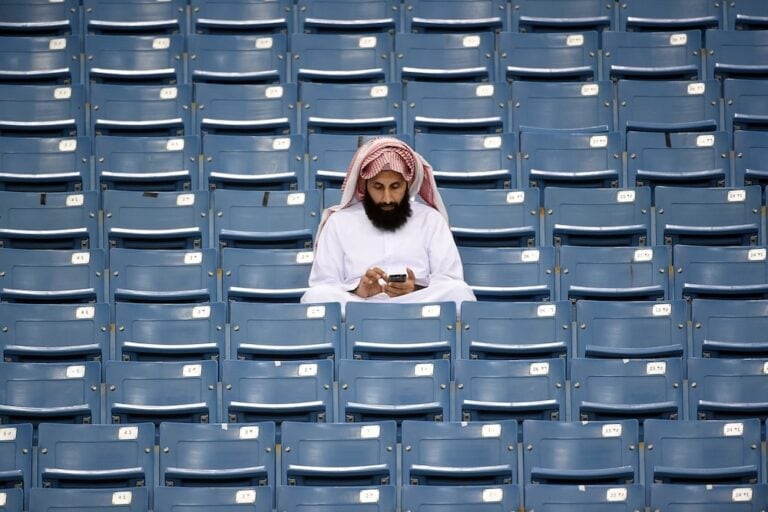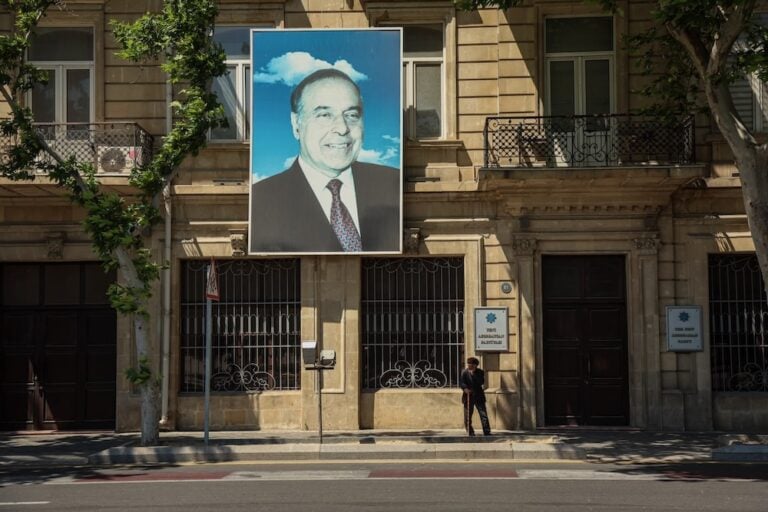(PPF/IFEX) – The government of Pakistan pressured the government of United Arab Emirates to close down two leading private television networks on 16 November 2007. According to Geo TV, the authorities in Dubai had asked the network’s administration to close down its operations by midnight (local time) on 16 November. The network further said no […]
(PPF/IFEX) – The government of Pakistan pressured the government of United Arab Emirates to close down two leading private television networks on 16 November 2007. According to Geo TV, the authorities in Dubai had asked the network’s administration to close down its operations by midnight (local time) on 16 November. The network further said no reason had been given for the move. A senior member of the network said that the channel had been ordered to go off the air as a result of the continued deadlock between the Pakistani authorities and the broadcasters, following the imposition of emergency measures in the country.
According to a spokesman for the ARY network, the group had been told to shut down its news channel.
The move has been widely condemned within Pakistan and internationally. The largest media organisations in Pakistan, including the All Pakistan Newspapers Society (APNS), the Council of Pakistan Newspaper Editors (CPNE) and the Pakistan Federal Union of Journalists (PFUJ), as well as international organisations including the Committee to Protect the Journalist (CPJ) and Reporters sans frontières (RSF), strongly condemned the action and called for the immediate restoration of broadcasting by these channels.
Demonstrations by journalists were held in all major cities and towns throughout Pakistan to protest the ban.
The APNS and the CPNE called for an immediate restoration of the operations of all television news channels. In a joint statement on 17 November, the APNS and CPNE chiefs said, “This alone will allow an immediate return to the process of constructive dialogue between the government and civil society, for which a free press and a free electronic media are arbitrators or referees.”
They said as freedom of the print media and the electronic media were inseparable, it was high time that the government and the press heard each other’s grievances.
They called upon President Musharraf to reconsider “before it is too late” the recent decisions regarding restrictions on the media because a “deteriorating climate for freedom of expression and freedom of association would ultimately affect the people’s freedom of choice – which the general election attempts to represent”.
APNS and CPNE also urged journalists, lawyers and political activists, “either at the barricades or incarcerated in prisons, to join together in a national reconciliation effort which can only begin with the immediate restoration of (the operations of) television channels and prompt withdrawal of black amendments in the Press, Newspapers, News Agencies and Book Registration Ordinance, 2002, and the Pemra Ordinance, 2003”.
Earlier, on 3 November when it declared the state of emergency, the government had used its influence over local cable operators to stop broadcasts by all domestic and foreign news channels. Despite the ban, the television channels that beam programmes from ground stations based in Dubai had continued with their broadcasts. Although the channels were not available on cable in Pakistan, they could be viewed either through satellite dish, or outside Pakistan.
Over the last few days, however, cable operators had been allowed to air all domestic and foreign news channels except Geo TV and ARY One. However, in an unprecedented move on the night of 16 November, the authorities in Dubai asked Geo TV and ARY One to stop broadcasting.


